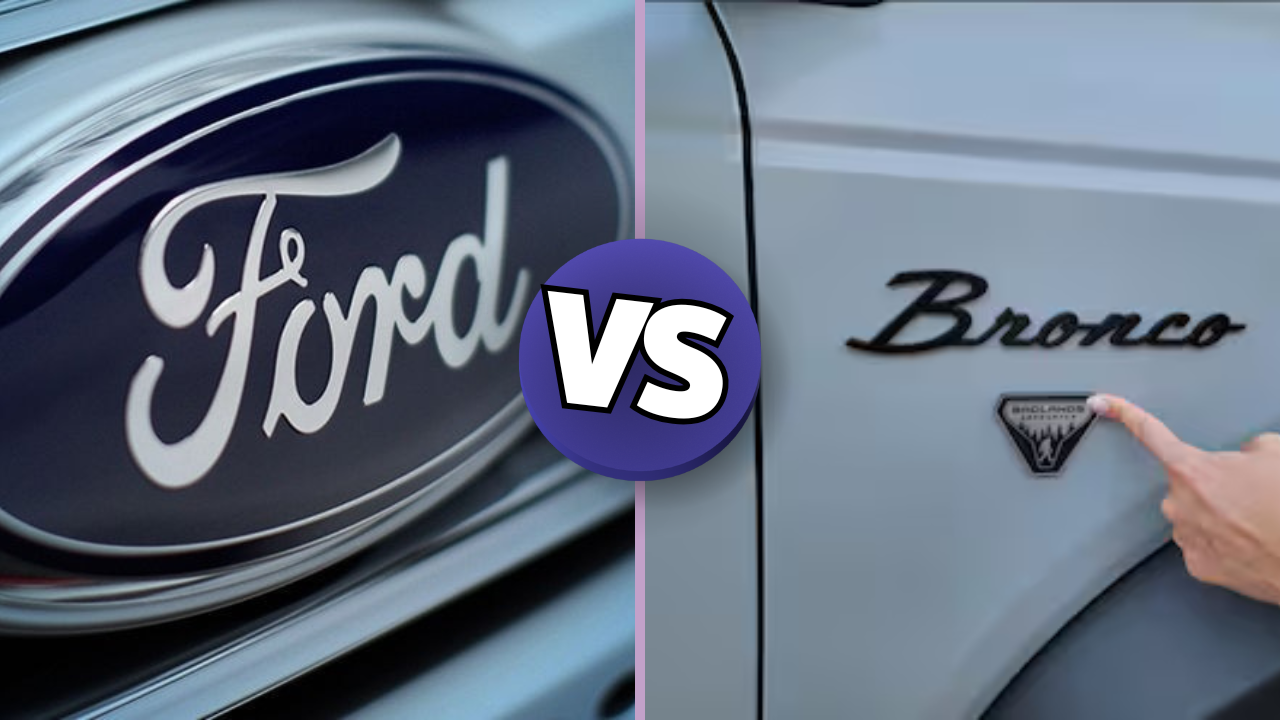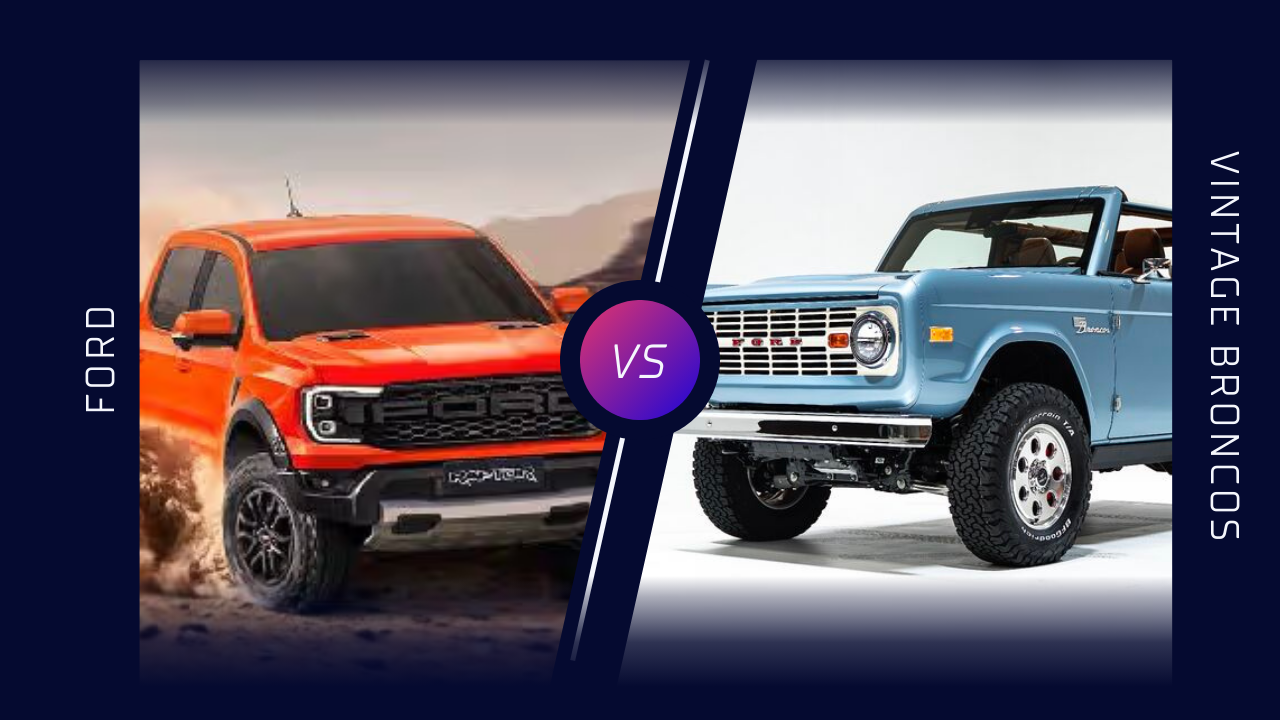Ford Motor Company, one of the world’s most iconic automakers, is embroiled in a legal battle that could reshape the restomod industry.
The case, filed in the U.S. District Court for the Northern District of Georgia, pits Ford against Vintage Modern (formerly known as Vintage Broncos), a company specializing in giving modern Broncos a retro 1960s aesthetic.
Ford alleges that Vintage Modern’s modifications infringe on its trademarks and unfairly profit from decades of investment in the Bronco brand.
The lawsuit has sparked heated debates among car enthusiasts, industry insiders, and legal experts alike. Is Ford protecting its intellectual property, or is this a case of corporate overreach stifling innovation?
To understand the stakes, let’s dive into the details of the lawsuit, the broader implications for the restomod industry, and what it could mean for car enthusiasts worldwide.
What Happened? The Details of Ford’s Lawsuit
On Halloween 2024, Ford filed a lawsuit against Vintage Modern, accusing the company of trademark infringement.
According to Ford, Vintage Modern’s practice of modifying new Ford Broncos to resemble their classic predecessors misleads consumers and exploits the automaker’s intellectual property.
Ford’s legal filing highlights several key issues:
- Trademark Infringement: Ford alleges that Vintage Modern’s use of the Bronco name and likeness creates confusion among consumers.
- Unfair Competition: The automaker claims that Vintage Modern’s business model unfairly capitalizes on the reputation of the Bronco brand.
- Misrepresentation: Despite disclaimers on Vintage Modern’s website, Ford argues that the company’s branding—particularly the logo design—still mimics Ford’s trademarks too closely.

In response, Vintage Modern maintains that their vehicles are entirely modern creations inspired by classic designs. The company emphasizes that their cars come equipped with state-of-the-art safety features, modern drivetrains, and advanced technologies like Android Auto and Apple CarPlay.
To mitigate legal risks, Vintage Modern has included disclaimers on their website stating that they are not associated with Ford or any other automaker.
Why This Lawsuit Matters
This lawsuit goes beyond a simple trademark dispute; it touches on larger issues that could impact the entire restomod industry.
- Precedent for Restomod Businesses: Restomod companies thrive by combining classic aesthetics with modern performance. However, Ford’s lawsuit raises questions about how far these businesses can go before crossing legal boundaries. A ruling in favor of Ford could set a precedent, restricting how companies modify vehicles and market their products.
- Implications for Automotive Enthusiasts: Ford’s Bronco is more than just a vehicle—it’s a cultural icon. Enthusiasts have long celebrated the Bronco’s timeless design, and Vintage Modern tapped into that nostalgia by offering a modern version with a classic twist. If Ford wins, customers seeking restomod options might face fewer choices and higher prices.
- Brand Protection vs. Innovation: Ford’s stance reflects a broader tension between protecting intellectual property and fostering creativity. While automakers have a right to defend their trademarks, critics argue that aggressive legal action could stifle innovation in the aftermarket industry.
Legal Perspectives: What Ford Needs to Prove
To succeed in its lawsuit, Ford must demonstrate that Vintage Modern’s actions meet the legal criteria for trademark infringement. Key considerations include:
- Likelihood of Confusion: Ford will argue that consumers might mistakenly believe Vintage Modern’s vehicles are officially affiliated with or endorsed by Ford.
- Dilution of Brand Value: Ford may claim that Vintage Modern’s use of the Bronco name and design elements diminishes the exclusivity of its trademark.
- Unfair Competition: The automaker will contend that Vintage Modern’s branding and marketing practices unfairly capitalize on Ford’s decades of investment in the Bronco brand.
On the other hand, Vintage Modern may defend itself by emphasizing:
- Non-Affiliation Disclaimers: The company has made efforts to clarify that it operates independently of Ford.
- Fair Use: Vintage Modern could argue that their modifications are transformative and do not harm Ford’s brand.
The Rise of Restomod Culture
The restomod trend has gained immense popularity in recent years, driven by a desire to blend nostalgia with modern convenience. Companies like Vintage Modern cater to customers who love the aesthetics of classic vehicles but want the reliability and safety of new ones.
Vintage Modern’s creations exemplify this trend, offering vehicles that retain the iconic Bronco silhouette while incorporating advanced features like anti-lock brakes, stability control, and touch-screen infotainment systems.
However, this lawsuit highlights a key challenge for restomod businesses: navigating the fine line between honoring heritage and infringing on intellectual property.
Historical Context: Similar Legal Battles
Ford’s lawsuit is not the first time an automaker has clashed with a restomod company. Similar cases have arisen in the past:
- Porsche vs. Singer: Porsche filed a complaint against Singer Vehicle Design for its custom 911 restomods. The case led to stricter disclaimers on Singer’s marketing materials.
- Shelby vs. Aftermarket Builders: The use of Shelby branding by independent builders has also sparked legal disputes over the years.
These cases underscore the challenges faced by restomod companies operating in legal gray areas.
What’s Next for Ford and Vintage Modern?
The outcome of this case could have far-reaching implications. If Ford prevails, Vintage Modern and similar businesses may need to overhaul their branding and product offerings. On the other hand, a ruling in favor of Vintage Modern could embolden restomod companies to push creative boundaries further.
For now, car enthusiasts and industry stakeholders will be closely watching the case unfold. Beyond the courtroom, the lawsuit raises important questions about the balance between protecting intellectual property and encouraging innovation.
Conclusion: Battle for the Future of Custom Cars
The Ford vs. Vintage Modern lawsuit is more than a legal dispute—it’s a flashpoint in the evolving relationship between automakers and the aftermarket industry. While Ford seeks to protect its brand, Vintage Modern represents a growing demand for vehicles that blend classic charm with modern performance.
As the case progresses, it will undoubtedly shape the future of restomod culture. Will automakers embrace this creative movement, or will they tighten their grip on intellectual property? The answer could redefine the automotive landscape for years to come.
What’s your take on this legal battle? Should automakers have the final say on how their vehicles are modified, or do restomod companies have a right to innovate?
Please Read: Delonghi Magnifica Evo vs Café Affetto vs Gaggia Magenta Plus: The Ultimate Espresso Machine Showdown





